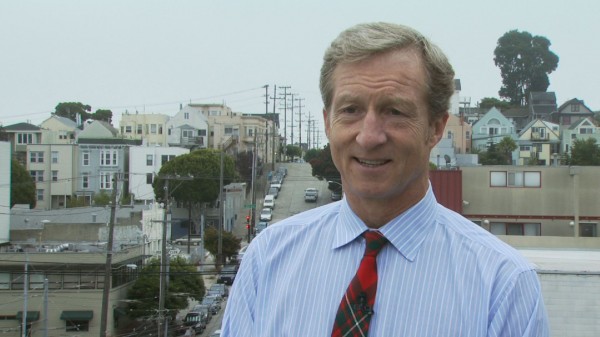Billionaire Thomas Steyer Backs YES on Prop 39


This November Californians will have the choice to vote on Proposition 39. If 39 should pass, it will require that businesses with operations in multiple states pay income taxes based on a percentage of their business in California, instead of the currently permissible preferred tax calculation method. (For more on Prop 39 visit the IVN Election Center.)
Whether the proposition passes could rely heavily on the success of the "Yes" and "No" campaigns, as the intricacies of business taxes are not the average voter's expertise. Interestingly, the “Yes on Prop 39” campaign has raised $23.128 million in contributions, with $21.9 million invested by one man, Thomas F. Steyer. The “No on Prop 39” campaign, on the other hand, has had no financial support.
According to Forbes.com, Steyer has a net worth of $1.3 billion. His self-made fortune began with San Francisco-based hedge fund Farallon Capital Management, which he founded in 1986. Since then, Steyer has become Managing Director and Member of the Investment Committee of Hellman & Friedman, L.L.C. and has been heavily involved in both business and politics. He has also co-founded the Advanced Energy Economy business organization and has created the One Pacific Coast Foundation to start a community bank, One Pacific Coast Bank.
Steyer argues that Prop 39 could bring $1.1 billion a year to California. The money would then be used for clean energy and other programs that will create jobs. Section 2, Division 16.3, Chapter 2 of the proposition creates the "California Clean Energy Jobs Fund," which would receive $550 million from the General fund over five fiscal years. If the Citizens Oversight Board, created by the proposition, is diligent and efficient with the funds raised and re-appropriated by Prop 39, California may see a rise in clean energy jobs.
California voters now have several issues to consider when deciding how to vote on Prop 39: The "Yes" campaign’s argument for passing the proposition and the implications of Steyer’s involvement, and the "No" campaign’s counter argument.
Researching the groups and individuals that fund campaigns is a helpful way to understand whose interests are involved where, and can help voters estimate the full repercussions of a given proposition.


